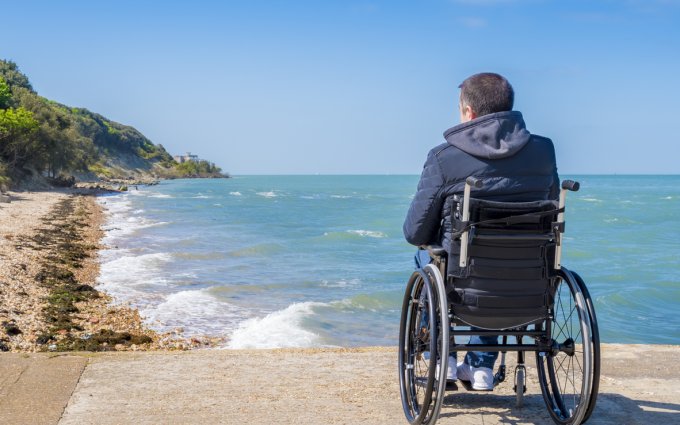
The injury
A male gas station attendant tripped over a mat and fell head first into an ice cooler.
The diagnosis
The injured worker sustained a spinal cord injury. The emergency responders noted that he was conscious, with a Glasgow Coma Scale score of 15 out of 15. He was unable to move his upper extremities, reported numbness of his lower extremities, and was found to be hypotensive.
The Paradigm solution
This injury occurred in August 2018 and the case was referred to Paradigm in October 2018. Prior to the referral, the injured worker had been in and out of acute care for respiratory complications. He was in an acute rehabilitation unit when the referral was received. The rehabilitation team felt the injured worker had low rehabilitation potential due to pre-existing developmental delay and need for caregiver/roommate oversight. The facility determined that he required 24/7 care and was contemplating discharge to a skilled nursing facility, as they felt he would not be able to learn to direct his care. The injured worker’s long-term placement was projected to be a nursing home. At this point, he required assistance with his self-care, activities of daily living and transfers. Paradigm’s Management Team, led by Dr. Indira Lanig, recommended the injured worker undergo neuropsychological testing to establish his cognitive baseline and learning abilities, as this information was critical to his rehabilitation. The neuropsychological testing indicated the injured worker had average intelligence, but experienced delayed processing of information. With this new information, the Paradigm Team was able to negotiate a longer length of stay in the inpatient rehabilitation unit, allowing him to become proficient in managing his power wheelchair. Following his acute rehabilitation, the injured worker was transferred to a skilled nursing facility. Paradigm was able to secure the assistance of a learning specialist/occupational therapist to support his rehabilitation at the skilled nursing facility.
A positive outcome
In August 2019, the injured worker transitioned from a skilled nursing facility to an independent living community for individuals with disabilities. He has 24-hour remote supervision and personal care attendants five hours per day to assist him with his self-care and activities of daily living. The injured worker’s primary means of mobility is a power wheelchair, which assists him in navigating the grounds of his living facility and the nearby community. His current care configuration has remained stable. The injured worker made tremendous progress with occupational and physical therapies. He is able to assist with his self-care and ambulates with assistance and a front-wheeled walker. He directs all aspects of his care and understands the care protocols for skin maintenance and protection. He actively participates in his church community and activities sponsored by his independent living community.
Paradigm’s team interventions were able to substitute long-term nursing home placement with 24/7 care, complemented the facility care plan, and increased the level of function of this injured worker, resulting in a very satisfied injured worker and carrier.